Women in ancient Egypt
The conditions of women in ancient Egyptian society
According to the theory of creation, Egyptian women had a high position in ancient Egyptian society as the only partner for a man in his religious and worldly life. The origins of the universe found in the Pharaonic religious principles, in terms of full legal equality and a man’s association with women for the first time in the holy bond through eternal marriage contracts and this status seemed modern Suddenly when compared to the position occupied by women in most contemporary societies at that time and even in previous times. Although traditionally, men and women in Egypt have different privileges in society, it is clear that there are no obstacles that cannot be resolved in the way of those who wanted to deviate from this pattern.
The Egyptians did not recognize women as equal to men but rather as a compliment. However, despite all this, the Egyptians benefited from the position in which they were placed in some societies.
This ancient Egyptian religion and morals expressed this opinion. This respect is evident in religion and theology as well as in morals. But it was difficult to determine the degree of conformity in the daily life of Egyptians. This is, of course, very far from ancient Greek and Athens society, where women are considered legal minors for life. On the other hand, Egyptian literature does not hesitate to present women as irrational and unreliable.
Demosthenes, one of the leading Greek preachers and politicians, said in the fourth century BC about Greek women: “We have concubines that bring us pleasure, and daughters who love to give us the pleasure of the body, and finally we have wives who give birth to children and take care of our home affairs. ».
Egyptian women in Pharaonic history exceeded this status until they reached the point of sanctification. Hence, the deities of women appeared next to the male deities, but the gods of wisdom were in the form of a woman, and the god’s Isis was a symbol of loyalty and loyalty.
And the ancient Egyptians made for justice a goddess while she was Maat, and for love the goddess Hathor, and for might the might be cast. The Egyptian woman also obtained a religious position in the temples, such as the High Priestess, and even Queen Hatshepsut received the title of the hand of God.
The woman entered many different fields of work, participated in public life, and attended government councils. She had the right to breastfeed the child during work. The practical appreciation of her reached the point of raising her to the throne of the country, as the king took over in ancient times, such as Hetab, the mother of the king Khufu She betrayed, the daughter of the pharaoh Menkaure; Porn, the Queen of Thebes; Hatshepsut; Akhenaten’s wife T Cleopatra. The woman also worked in the judiciary such as Nebt, King Tite, the first protector of the sixth family, and the position was repeated during the reign of the twenty-sixth family, and also work in the field of medicine such as Baschit, who held the title of a chief physician during the era of the fourth family. The female writers reached them for managerial positions, head of the warehouse department observer Royal stores, businesswoman, priestess.
“The Egyptian woman was leading a happy life in a country where gender equality seemed normal” is an expressive phrase for the French Egyptologist Christian Derouche Noblecourt, affirming that the Egyptian person considers that equality is a thing that has been broken on him. The Pharaonic civilization put the first legislation and laws regulating the role of women and the first These legislations, the most important of which are the marriage or sacred bond legislation in terms of rights and duties based on mutual respect between the husband and wife as she is a housewife and the first court in it, in addition to her full and equal right with the man in terms of inheritance rights, as well as she had a third of her husband’s money if he divorced her without reason. The ancient Egyptian was also keen to ensure that his wife was buried with him in a cemetery as his partner in this life and after the resurrection.
Women held great titles in ancient Egypt, such as pure hands; Great in the palace; The lady of love, the lady of beauty; Great cheerful. At the same time, the eighteenth dynasties possessed the largest share of these titles.
The legal system
The legal system applied in Egypt referred to the importance of women’s participation in it, as it was a goal that had been achieved in a few cultures. The value and knowledge of women in various professional fields indicate that Egyptian women were a necessary influence in ancient Egyptian politics. “There is no society, new or contemporary, except for western societies in recent times, women will reside as ancient Egypt did.”
It is believed legally that there is a theory of legal equality, which has become limited over time by the new invasions of the status of women and their rise to important positions in the Old Kingdom that were affected in the era of the Middle Kingdom and returned to continue in the modern state. “This is taking place during the time of prosperity and the arrival of new settlers, such as the Assyrians and the Greeks, where the freedoms of women will be gradually reduced,” said the Danibai court.
Egypt was an empire with a large culture, inclusive of women. Some academics have tried to classify that it is mothers who are told more than men. They depended on this in the fact that the fathers were unknown or doubtful. The anthem of Isis explains the papers of Occernuso in the second century B.C. on this equality between men and women, noting that she is a goddess who preserves the female gender: “You are the master of the earth (…), and you have given women the power to be equal as men.”
Marriage and family
Marriage in ancient Egypt was a sacred bond that combined women and men. The ancient Egyptian sanctified marriage, and the Egyptian woman preserved all her marital rights. Professor Janet Johnson of the University of Chicago said: “Marriage contracts in ancient Egypt were in the interest of the woman and guaranteed her rights in the event of the marriage due to pressure from her family, or any other circumstances.”
It was the woman who started the man’s engagement and offered to marry him. Papyrus papers indicate that marriage to one was known even in the pre-dynastic era, that is, seven thousand years ago. This was evidence of the importance of marriage and the extent of its sanctity, which appears in one of the myths that explain the phenomenon of the Nile flood. The ancient Egyptians believed that the Nile water increases when the goddess Isis remembers the death of her husband Osiris and sits at the river’s shore and cries, for her tears were descending to the river, and the water increased, and the flood of the Nile came.
Hunting scene.
She also considered the woman a companion to her husband and used to help him in housekeeping, hunting, fishing and birds. As such, Egyptian women are a mainstay of all domestic and political affairs. The woman would wake up early in the morning to prepare breakfast for her husband and children, and the husband and the oldest children would go to work, the younger children would go with cattle and geese, or their mother would go to school to learn. The man was a frequent traveller between several places to practice grazing or cultivation or any other profession for which he had a livelihood. In contrast, the wife had to organize her home, create happiness and luxury for her husband, and raise her children. She would go out to the nearby canal to fill the jar and wash clothes and go home with enough water for the rest of the day. During the Old Kingdom, although the woman’s position was hierarchical and smaller than that of her husband, her social importance was distinctive. So, she passed the characteristics from mother to her daughters. Often, the children were named after the mother as the father’s name was secondary. There was a great connection between the generations of the family, and it seemed logical that the children were protecting their ancestors. The woman had her own residence in the affluent families, the opet, where she lived with her children and servants. Women took care of hiking in outdoor places, parks and enjoying flowers on many occasions. She loved the environment and made sure to clean everything in it.
Among the sayings of the Egyptian sages about the importance of caring for a woman and their wills for their children, which were found on one of the papyri’s that recorded those wills. Hakim Ptah Hub said about the year 2400 BC: “If you want wisdom, love your partner, take care of her .. take care of your home, feed her properly, cover her back and cover it, embrace her and fulfil her requests, open her arms to her, and invite her to show your love for her. Explain her chest and bring happiness to her heart throughout her life. It is a good field for its master, and you must harden it, for cruelty is a ruin of the house that you founded .. it is the house of your life. “Keep it as long as you are alive. It is the gift of the gods, who responded to your prayers, so I blessed them with you, and you should sanctify grace to please the gods”; “Feel her pain before she is in pain … She is the mother of your children if she is happy with their happiness, and in her care of their care, it is a trust in your hand and your heart. You are responsible for it before the Great God, who has vowed in his mihrab to have a brother, father and partner for her life.
As Al-Hakim Annie said in the fourteenth century BC, addressing his speech to men: «Do not be a controlling president for your wife in her home, if you know that she is doing an excellent job in the marital home, she is happy, and you are tightening her hand, and your hand with her hand (. ..) You know the value of your wife and your happiness when your hand is next to her .. for every husband should show restraint while treating his wife ». As for Al-Hakim Sanab-Hout, his son recommends the following: “If you want God, love your partner, take care of your house and take care of you, bring it closer to your heart. God has made her faithful to your soul. All of that will be reflected on your home, perfume your life, and give it light, make her happy as long as she is alive. It is the gift of God who answered your prayer with her, so sanctifying grace to please God and prevent its disappearance.
Under the property law in ancient Egypt, a woman had a third of her husband’s property after marriage. She had the right to dispose of property she had transferred to after marriage, such as dowry.
In the event of a divorce, her property was returned to her, in addition to the settlement that took place after the divorce. In the event of death, she had the right to inherit from her husband by two thirds, while the third was divided between children and the brothers and sisters of the deceased person.
In some cases, the husband provided, in his will, for the possibility of enabling his wife from the greater part of his share or allowing her to dispose of all funds.
Adultery was forbidden, and the woman was punished with death, and likewise, infidelity of the spouses was also prohibited. In addition, love was common in ancient Egypt, and papyri were found with frank and chaste spinning, which shed light on the feelings that bind men and women. Violence against women was rejected in ancient Egypt, but the courts of the late-era witnessed a state of violence, which was beating the wife, and the husband was punished for that. This was recorded on a pottery beak.
Divorce
The ancient Egyptian civilization developed the legislations and laws that regulate the rights and duties of women not only in marriage but also included the state of separation and divorce, and the resulting economic rights of women, or appropriate financial compensation. To reduce divorce and its consequences from the collapse of the family, it imposed many conditions for the divorce process. In his research on divorce in ancient Egypt, Dr Nashaat Al-Zuhri says, “Not only did the husband in ancient Egypt divorce his wife from his lips by saying that you deserted you as a wife, but rather he delivered her a written divorce document confirming her freedom and the end of the marital relationship between them and enabling her to marry another if she wanted.”
The witnesses signed the divorce document as expected the marriage document. Still, there were in the divorce document 4 witnesses, while in the marriage contract, there were 16 witnesses. The formula for divorce was as follows: “I left you as my wife, and I divide you, and I have no requirement at all, as I told you that It is permissible for you to take another husband for yourself whenever you want.
To guarantee women’s rights in a divorce, marriage contracts provided for material compensation appropriate for the woman. In one of the papyri preserved in the British Museum, a marriage contract dates to 172 BC between the priest Bajush and his wife, Tateh. The husband pledges to pay a large compensation within 30 days In the event of divorce. [14] Al-Zuhri adds that the wife was entitled to compensation from the money when she divorced in addition to the dowry, compensation began in the Pharaonic era twice the value of the dowry and reached in the Ptolemaic period 5 times, and up to 10 times the maximum, and this large compensation was a method to make the divorce difficult.
The British Daily Mail newspaper reported that the Department of Oriental Studies at the University of Chicago revealed a papyrus about 2500 years old, written in demotic, stating that women should receive compensation if the marriage fails, as the state of separation gets 30 pieces of silver and 36 shawls of grains every year for the rest of her life, which Ensures to provide all its needs.
Its legal legacy
A 2480-year-old Pharaonic document reveals that women have enjoyed the same legal rights as men.
Through legal documents on women’s rights, it was found that women in Egyptian society managed and disposed of private property, including land, goods, and livestock, and managed all their property by their free and independent management. She also had property rights to the property and real estate that she often obtained as gifts or inheritance from her parents, husband, or others, or by receiving them by purchasing goods collected, either by work or borrowed.
Likewise, she had the right to contract marriage, divorce, and property purchase, up to the slave purchase arrangements. She was free to file lawsuits against anyone in court. There was no gender bias or bias against them. The papyri show many cases of women who obtained their rights in these cases, and there was also evidence in the papyri and murals of working on the testimony of women before the courts.
A 2480-year-old Pharaonic document, written in Demotic script, revealed the rights of women and the ancient Egyptian wife, who seem to have enjoyed the same legal rights as men, according to the document presented at the Institute of Oriental Studies at the University of Chicago, USA. The pharaonic papyrus, which reaches 2.4 meters in length, obligated the husband in the event of marriage failure, with an annual expenditure of 1.2 pounds of silver and 36 bags of grains throughout her life, and made the woman independent financial liability, which makes her manage, own and sell her property freely, including servants, slaves, and livestock.
Equality before the law
For the ancient Egyptians, children were the most important in the family, and the woman was the master of the household, unlike in ancient Greece and Rome, where the head of the family was the man. Unlike Greek and Roman law, men and women appear to be equal before the law. She was paid a man’s wages in exchange for the same work. As a man, she was a citizen living in a country that fully recognized her rights until she could sue her father before the courts to protect her private property. Married women enjoyed full legal and financial independence, and women could control their own inheritance or be the first to trade. As Nefertiti in the modern state, they can also be doctors like Mrs Baschit during the rule of the fourth family. And by marriage, the woman kept her name with the addition of the word wife-and-such, which is natural because marriage does not register as an administrative act, and there is no religious proof… Simply the fact that the man and the woman wanted to coexist, and this is in the case of the work of the marriage contract, Which needs no more than identifying economic impacts to distinguish inheritance from person to person.
French woman Christian Derouche Noblecourt said: “The Egyptian woman, the mother who must be respected above all, is subject to the strict moral law, but enjoys great freedom of expression. Her full legal ability, amazing financial independence, and the impact of her personality on local and administrative life are in the public interest and their own self-interest. (…) Finally, marriage and divorce were considered successive events only within the family within the will of the spouses without interference from management. Future husbands utter these sentences: My wife made you: You made me your wife. »
Of course, things don’t always go perfectly, and divorce is acceptable. And there must be an initiative from one of the spouses, if it is from the husband, then he should leave part of the provisions for his wife, and if the wife is the initiative in this matter, she must have the same commitment but in a lesser way and there is the possibility of appeal before the administration to recover the home supplies even though it did not take place Interfering with marriage. The experience and marriage can be repeated, as shown by the Aramaic papyri of Elephantine in the fifth century BC.

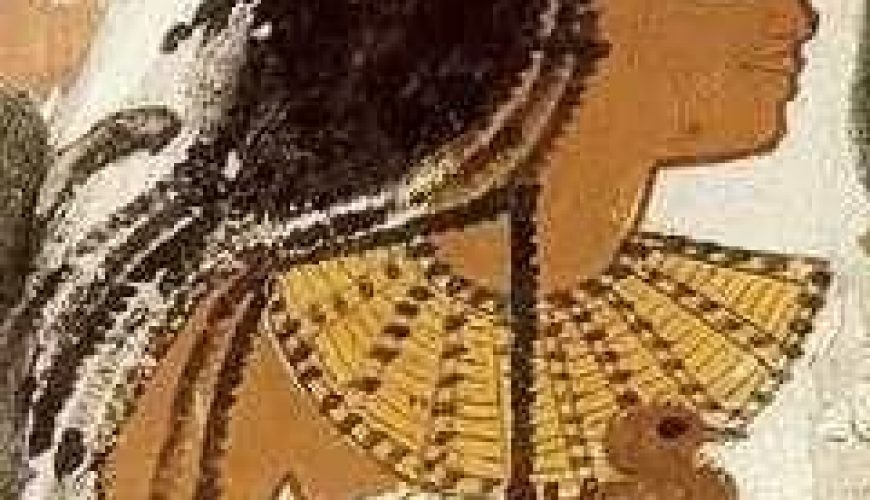
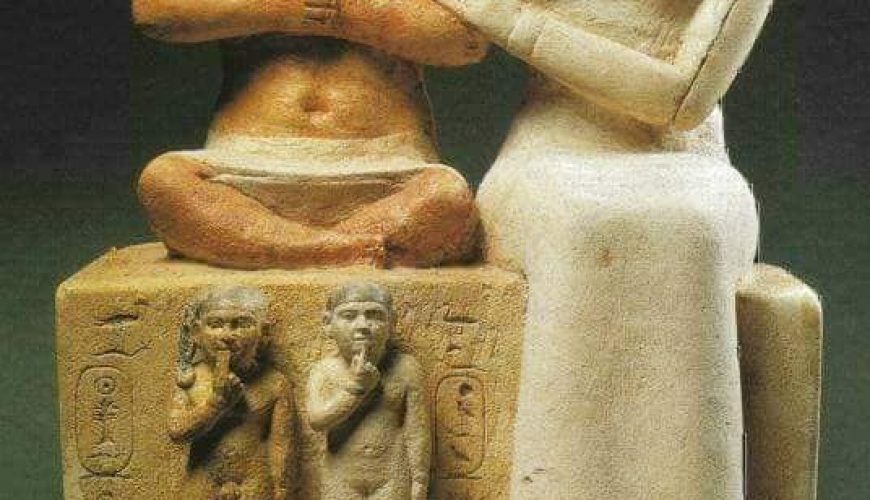
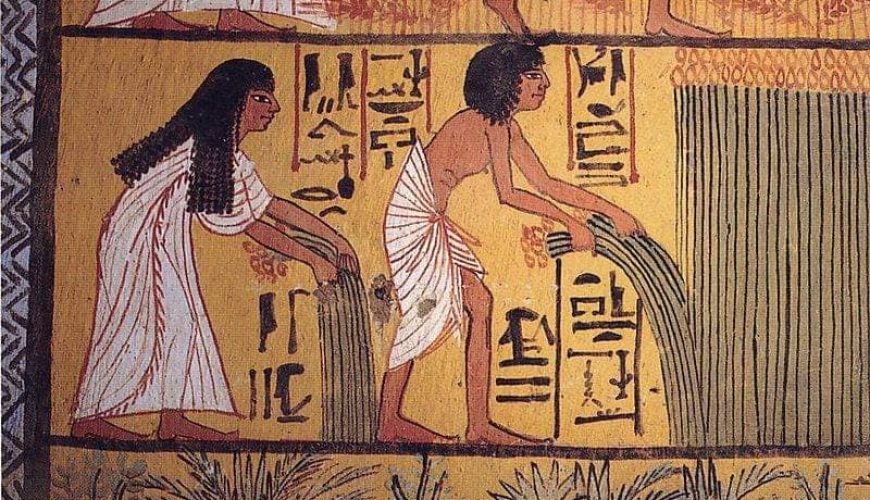
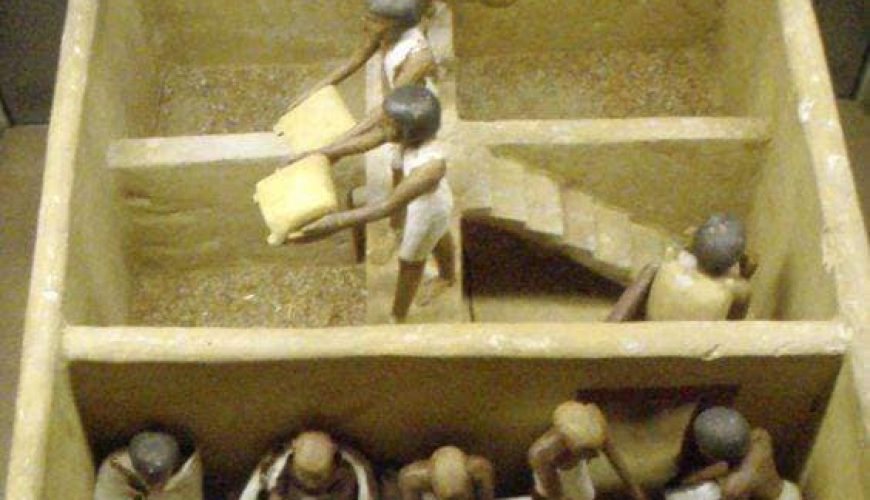
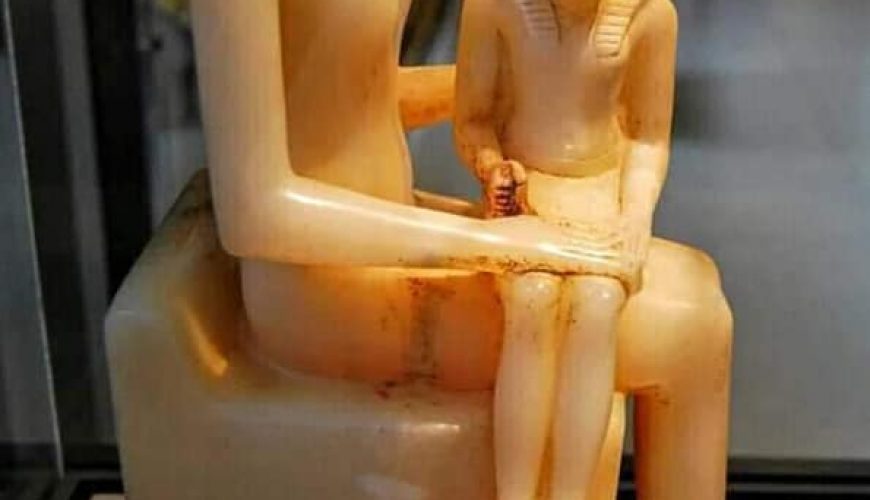
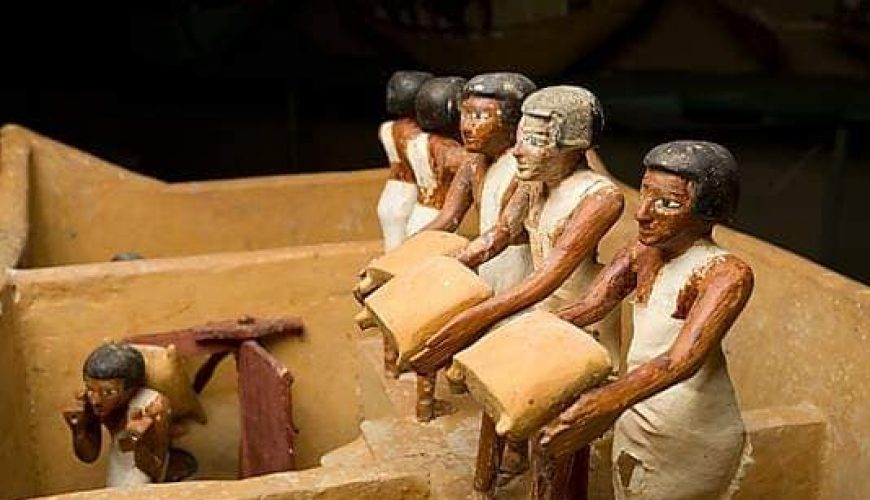
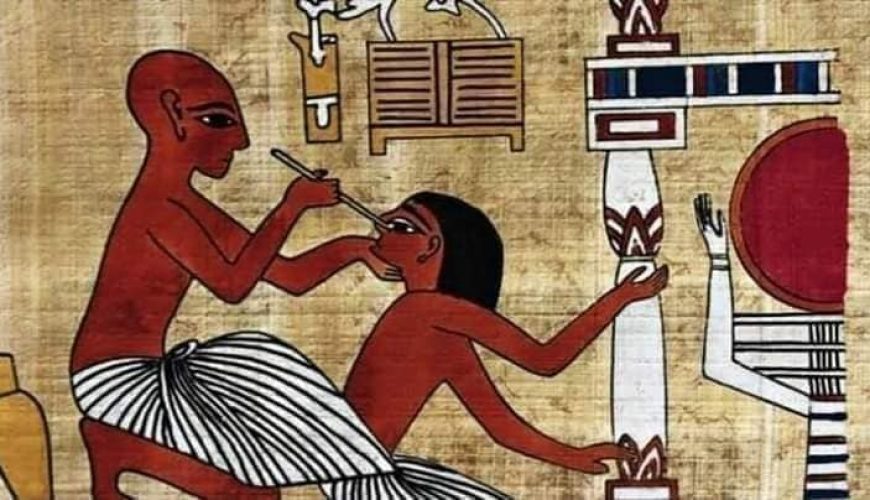
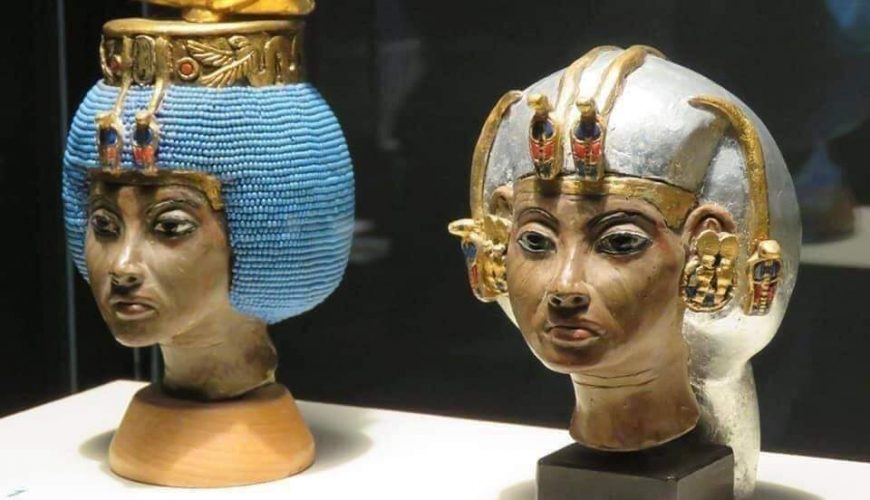
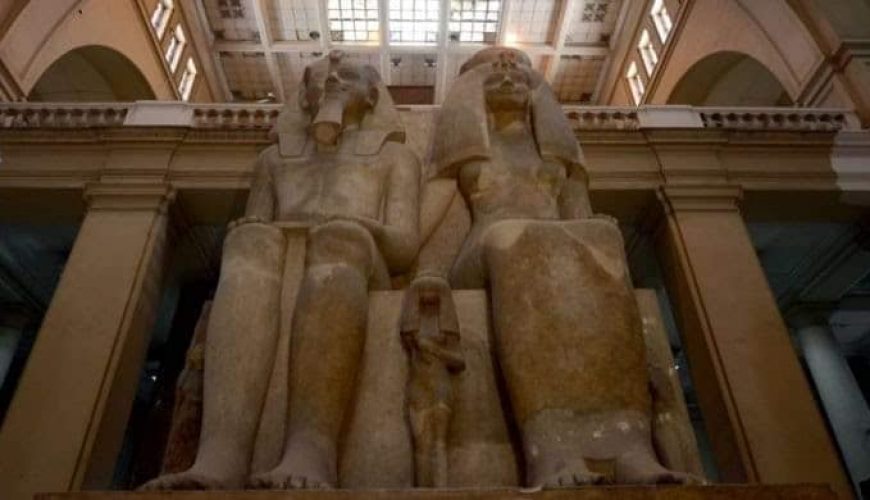
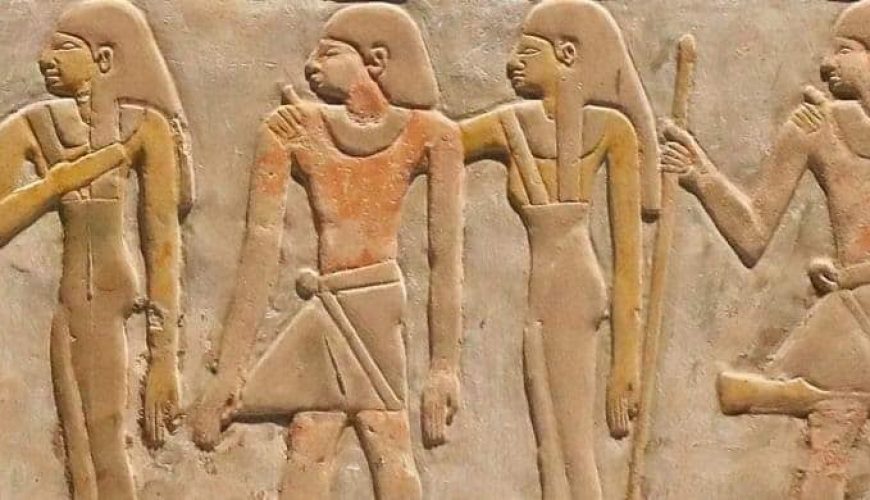
Comment (0)